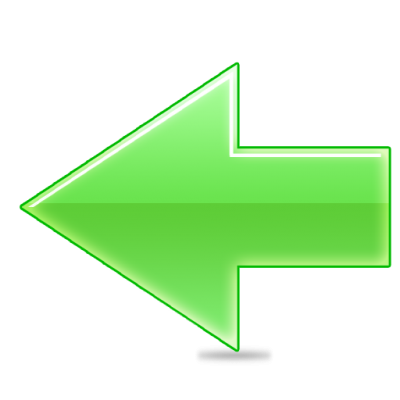Human Trafficking
Presented by
Lance J. Parks, LCSW
4 CE Credits/Contact Hours
Price: $20
Instructions
How to get your certificate of completion:
- On the left column, click on 'Download the Course.' [
 ] ]
- It would be helpful to 'print the test' to fill out as you read the course.
- After reading the course, click on the link to 'Take Test'
- If you have not already registered and logged in you will be prompted to do so.
- After passing the test, fill out the Course Evaluation, choose the method of payment then click submit (We accept PayPal, most major credit cards and echecks). You will then be taken to the payment page.
- After submitting payment, you will be able to print your certificate of completion on your member account page.
Test results of courses passed, receipts, and certificates of CE credit, are kept on your member account page for you to retrieve as needed.
Board and Agency Approvals
ASWB/ACE: SpeedyCeus.com, provider #1613, is approved as an ACE provider to offer social work continuing education by the Association of Social Work Boards (ASWB) Approved Continuing Education (ACE) program. Regulatory boards are the final authority on courses accepted for continuing education credit. ACE provider approval period: 12/15/24 to 12/15/27. Social Workers completing this course receive 4 general continuing education credits.
CALIFORNIA: This program meets the requirements for the California Board of Behavioral Sciences for 4 hours of CE Credit
TEXAS: This course meets the criteria for acceptable continuing education as defined by the Texas State Boards of Professional Counselors, Marriage and Family Therapists and Social Workers for 4 hours of CE Credit.
This program is approved for 4 continuing education credits/contact hours by:
It is the responsibility of the participant to check with their board regarding specific CE requirements.
CE Course Description
This course addresses the tragic topic of Human Trafficking. Included are studies on how it has become a large and major occurrence, and the assessment and trauma-informed treatment professionals can provide for the victims of this awful experience.
This course is an online, non-interactive, reading based, self-paced, and asynchronous course.
If you have questions about the course, require accessibility accommodations or need assistance, please email [email protected] or call (909) 628-4216.
CE Learning Objectives
After reading this course, the participants will be able to:
- Define human trafficking and describe trafficking in the United states.
- Employ evidence-based mental health treatment for human trafficking victims.
- Discuss trauma bonding and examine its biological and psychological effect towards the victim.
- Analyze human trafficking in a global level.
- Critique the most recent health care structure and recommendation for survivors of human trafficking.
Course Outline:
- PART 1: Needs Assessment for Service Providers and Trafficking Victims
- Chapter 1: Introduction
- Chapter 2: Background and Understanding
- Human Trafficking Defined
- Trafficking in the United States
- Responses to the Trafficking Problem
- The Federal Legislative Response
- Critiques of the Trafficking Victims Protection Act of 2000
- Other Federal Responses to Trafficking
- Other Responses to Trafficking
- Chapter 3:Methodology
- Research Design
- Study Sample
- Data Collection
- Telephone Survey
- Focus Groups
- Chapter 4: Key Findings
- Chapter 5: Recommendations for the Field
- PART 2: Treating the Hidden Wounds: Trauma Treatment and Mental Health Recovery for Victims of Human Trafficking
- Study Overview
- Trauma and Its Impact
- Challenges in meeting the needs of trafficking victims who have experienced traumatic abuse.
- Trauma Informed and Specific Services
- Core components of Trauma Informed and Specific Services
- Summary
- PART 3: Trafficking in Persons Report 2020
- Chapter 1: Trauma Bonding in Human Trafficking
- Understanding Biology
- Understanding Psychological coercion
- Looking ahead
- Chapter 2: Faith-Based Efforts to Combat Human Trafficking
- Chapter 3: Human Trafficking of Athletes
- Chapter 4: Trafficking for Forced Labour; the Economy of Coercion
- Different profiles trafficked in different economic sectors
- Domestic work
- Trafficking in agriculture
- Domestic work
- Risk factors
- Out of sight; confined in remote areas with few or no inspections
- Migration and precarious legal status
- Lack of due diligence; intermediation, sub-contracting and involvement of legal companies
- Chapter 5: Extraterritorial Commercial Child Sexual Exploitation and Abuse: Evolving Information and Improving Responses
- Chapter 6: Children: Easy Target
- Different forms of child trafficking in different parts of the world
- Risk factors for and drivers of child trafficking
- Chapter 7: Reengineering Health Care for Survivors of Human Trafficking
- Chapter 8: Traffickers Use of the Internet; Digital Hunting Fields
- Digital Platforms and markets: The use of technology to advertise, recruit, and exploit
- Advertisement
- Recruitment
- Internet-based exploitation
- Evolution of the internet platform used
- New geographies of trafficking in persons
- Cyber flows
- International flows
- Domestic flows
- Cyber traffickers
- Modus operandi: The strategies used
- Hunting strategies
- Fishing strategies
- Chapter 9: The Intersection of Human Trafficking and Addiction
Course Development
Course topics are chosen based on various board requirements and professionals needs. Licensed professionals oversee, compile and develop course materials, posttest, and other course materials, determine the level of difficulty, and ensure course content is appropriate. The course developer bio is available here.
Course Update February 2021
|
|


